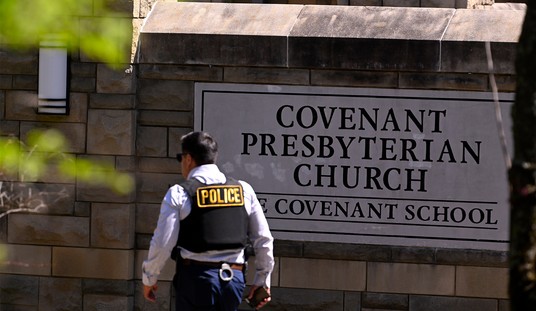Vice President Kamala Harris was an objectively bad presidential candidate, as evidenced by her electoral defeat last month, in which she won millions fewer votes than President Biden four years earlier. Harris lost to Donald Trump by more than 2.5 million votes. Trump defeated Harris in every swing state, and her ineffectiveness at the ballot box was underscored by her campaign burning through $1.5 billion in a shortened campaign. In August 2024, Harris’ political machine spent roughly $7.5 million daily, three times more than Trump.
Harris was also a subjectively bad candidate. This was obvious to anyone who watched her during her handful of one-on-one interviews, or saw her stump speeches where she inveighed voters to be “unburdened by what has been.” Harris’ tragically comical ineptitude at articulating a vision for the country was still somehow overshadowed by her delivery, which was disturbingly glib and condescendingly overbearing in equal parts. Harris had nothing meaningful to say but also turned off voters by how she said it.
And yet, no one should be surprised. Harris’ flame-out is especially unsurprising if you’re from California because her failures are directly traceable to the fact she is the product of the state’s one-party political system.
Harris is a Californian, and Democrats dominate California, so she was not battle-tested. Until her elevation to the top of the Democrats’ national ticket (without winning a single vote), Harris had run in precisely one competitive bipartisan race in California, and that was fourteen years ago in 2010. Like any upwardly mobile California Democratic party apparat, her rise was not the product of compelling political vision, which on the available evidence was either non-existent or incomprehensible, or her skill on the campaign trail, which was transparently performative and mediocre. Instead, she successfully leveraged her race, sex, relative attractiveness (Paul Begala famously quipped D.C. is Hollywood for ugly people) to climb the greasy pole of California Democratic politics through incredible timing (Democrats dubbed her the anti-Sarah Palin) and the grace of political benefactors.
Harris’ rise was made possible partly because she was insulated from criticism. Harris was never truly vetted by the San Francisco Chronicle, Los Angeles Times, or any of the state’s major newspapers because California Democrats and the state’s overwhelmingly left-leaning press have the same political views. There was no serious threat the coverage for a woman of color in California’s race-obsessed political environment would be anything other than laudatory. Whether Harris was competent or qualified was always eclipsed by her “firsts” – the first female State Attorney General, the first “person of color” elected San Francisco District Attorney, etc. Having a person with politically desirable attributes in a job was more important than whether that person could do the job. (Claudine Gay is another example of this phenomenon.) The pass the California press issued Harris was honored by the national mainstream media when she ran for President. 60 Minutes went so far as to alter an interview before airing it for the obvious reason Harris’ stand-alone performance wasn’t quite ready for prime time.
Recommended
Harris’ scrutiny-free ascension, however, was not without consequence. It appears legacy outlets like the Los Angeles Times (currently losing $30 to $40 million a year) and CNN (drastically cutting staff) have finally exhausted themselves, in part because they were complicit in portraying Harris with credibility she plainly did not possess.
Her time in California’s one-party system did make her an expert at one thing – internecine knife fighting. Harris honed these skills during her time in San Francisco and in Sacramento, where scores are settled among Democrats in the same way they were among Vito Corleone and the Five Families. Offense is given or a tribute not paid, and suddenly a political career ends up in a chalk outline on the sidewalk for reasons that will never be more than opaque to outsiders. The acme of Harris’ talent in this area was the bloodless removal of a sitting President earlier this year. One day, Biden was President, and the next day, it was universally and uncritically understood that he wasn’t. Harris emerged, smiling, in his place.
The point isn’t that Harris lacks talent because nobody simply floats to the top of a major party’s presidential ticket by chance or dumb luck. The fact is that candidates from one-party states like California rise by talents that are not translatable. Harris is the paradigm example of a politician produced by a system that has turned entirely inward on itself and responds only to a plot of political kingmakers, money, and public employee unions. California’s one-party system produces candidates where the most competitive element of the campaign isn’t canvassing door-to-door but securing SEIU support before the race kicks off or trying to persuade a gym full of teachers to contribute money and send mailers for them instead of a different Democrat vying for the party’s nomination. Voters are an afterthought. The issue set with which Harris was required to be familiar and the skills necessary to win public employee union endorsements wildly differ from what is needed to communicate a political vision and mobilize national bi-partisan public support. Advocating for open border policies, confiscatory taxes to support public employee pensions and government-guaranteed “gender-affirming health care” are received differently in Venice Beach and West Hollywood than in Dayton or Wilkes-Barre. This fact was fully displayed in 2019 when Harris withdrew from the 2020 Presidential election before the Iowa caucuses. Her go-to playlist of California favorites didn’t play outside California. When Harris was forced to turn outward and project a compelling message to a larger and (ironically) more diverse audience than in her home state, she lacked the skills to do it.
Kamala Harris was not a good candidate because she never had to be. California’s one-party system didn’t require it.
Patrick “Kit” Bobko is an attorney who practices law in Southern California.


